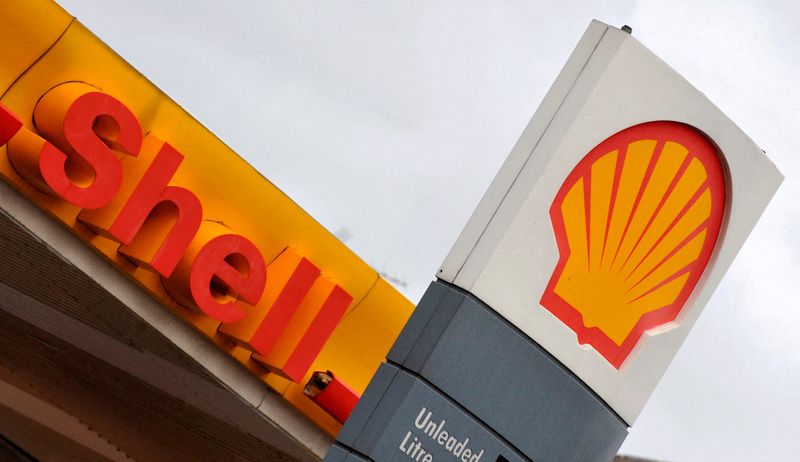(Reuters) -Shell, the world's biggest liquefied natural gas (LNG) trader, said on Friday second-quarter gas trading results were expected to come in "significantly lower" quarter-on-quarter, though in line with the previous two years' second quarters.
Wholesale gas prices were volatile in April-June, driven by maintenance in key supplier Norway, where Shell (LON:RDSa) unexpectedly extended an outage at its Nyhamna processing plant.
Shell cited "seasonality and fewer optimisation opportunities" as reasons for its lower gas trading result.
The company does not provide figures for its gas trading results or say what proportion of its business it accounts for.
The benchmark front-month Dutch gas contract last traded at 32.90 euros per megawatt hour, down from above 100 euros last year - including a spike to over 300 euros in August - and 70 euros at the start of this year.
Shell shares were up around 0.5% at 1234 GMT, lagging a European index of oil and gas companies, which was up 0.7%.
"Shell's trading update included a number of operational indicators which were broadly in line with our forecasts," said RBC equity analyst Biraj Borkhataria in a note.
"Weaker trading across oil and gas which should be expected by the market given lower gas prices and the seasonality of Shell's LNG portfolio."
Shell’s trading typically generates smaller profits in the second quarter due to lower seasonal demand.
The company added that trading performance in its chemicals and products business was also expected be lower than in the first quarter, with the indicative refining margin forecast to drop to $9 a barrel from $15 a barrel.
U.S. rival Exxon (NYSE:XOM) also guided to lower refining margins this week.

In an update ahead of second-quarter results on July 27, Shell also flagged $3 billion in writedowns for the quarter, primarily driven by a 1% increase in the discount rate used for impairment testing.
This is an accounting move to reflect a higher-interest rate environment, a spokesperson said.